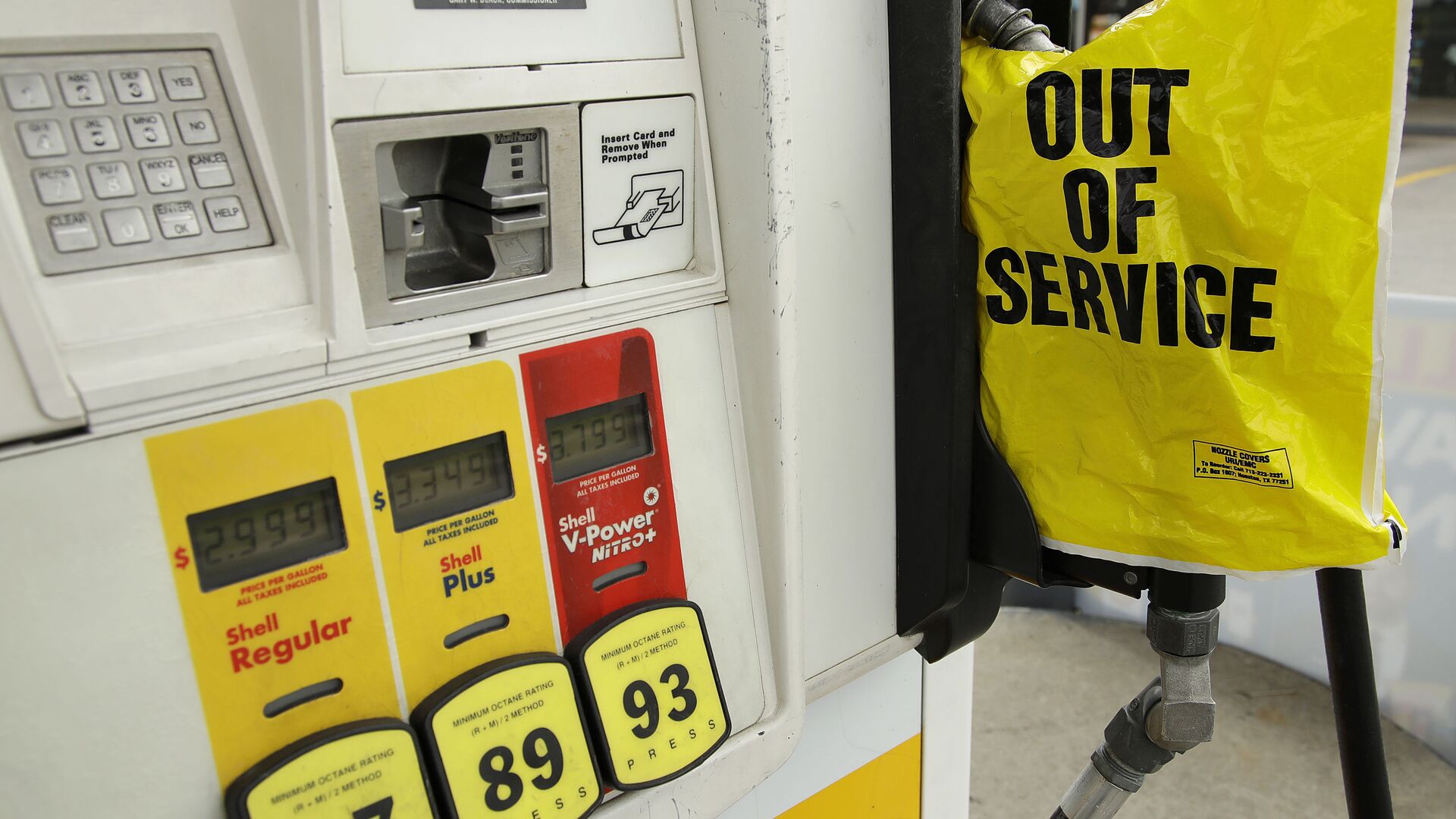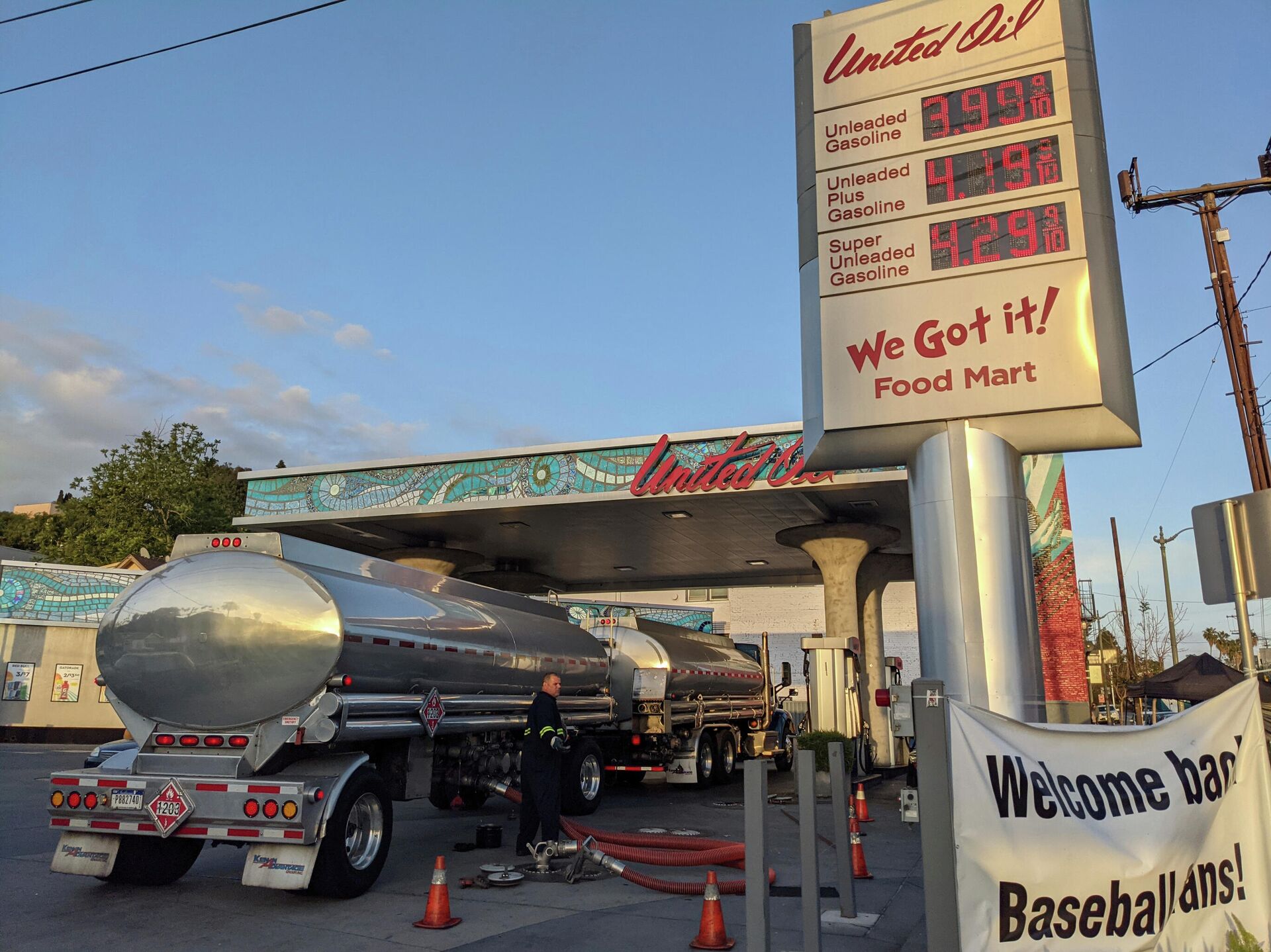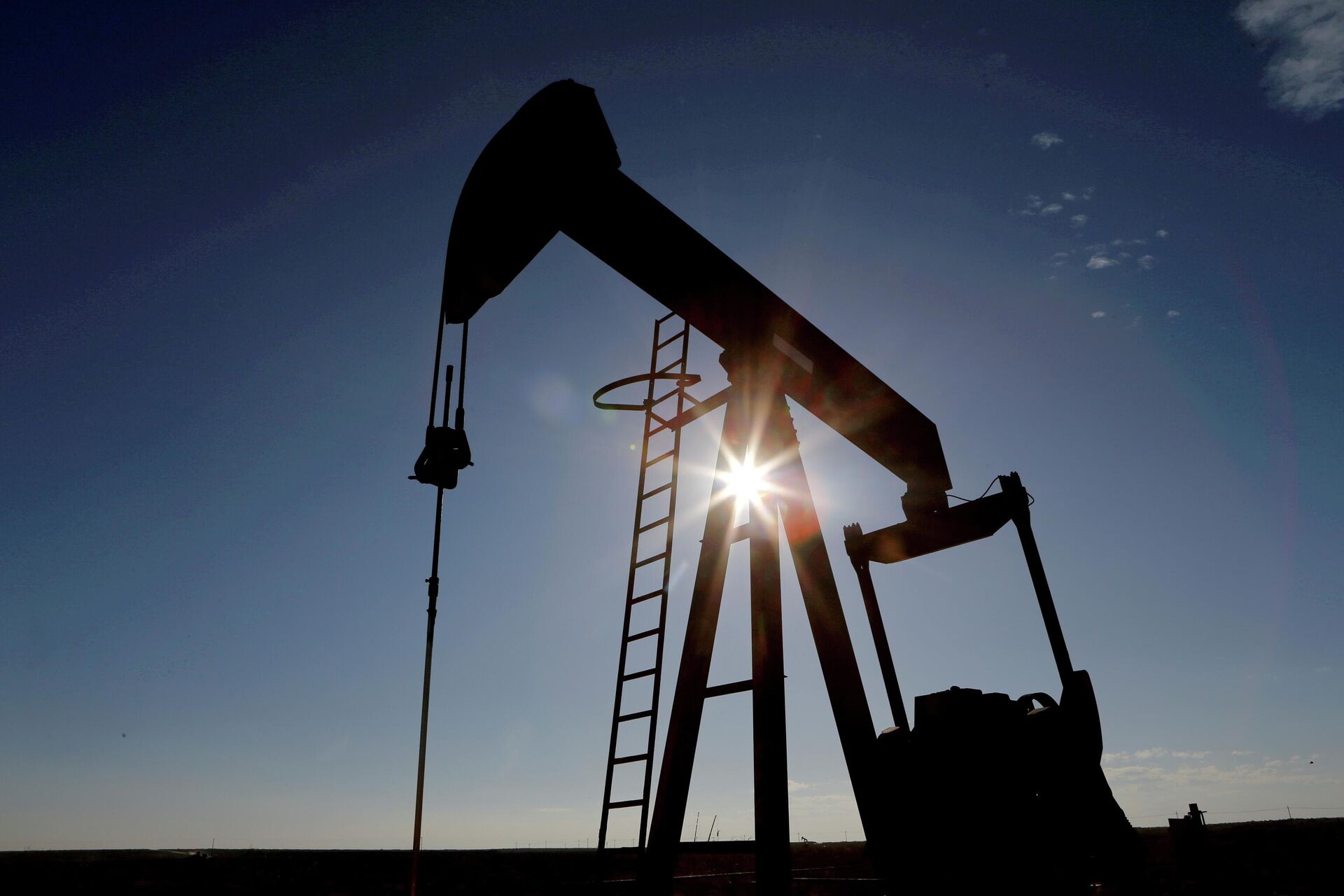https://sputnikglobe.com/20211028/ex-texas-oil-regulator-predicts-us-gas-prices-may-remain-high-for-couple-of-years-1090270445.html
Ex-Texas Oil Regulator Predicts US Gas Prices May Remain High for 'Couple of Years'
Ex-Texas Oil Regulator Predicts US Gas Prices May Remain High for 'Couple of Years'
Sputnik International
WASHINGTON (Sputnik) - US consumers should expect gasoline prices to remain high for the next couple of years as the energy industry strives to make up for... 28.10.2021, Sputnik International
2021-10-28T07:00+0000
2021-10-28T07:00+0000
2021-10-28T09:12+0000
us
gas prices
fuel
oil
https://cdn1.img.sputnikglobe.com/img/07e5/05/0b/1082858291_0:214:2881:1835_1920x0_80_0_0_4acf8cba52baf20a20db60d306d5ca4d.jpg
Gasoline prices could start to decline in the latter part of next year if the Biden administration pulls back on its efforts to cut emissions in the United States and to persuade other countries to do the same, Sitton said.President Joe Biden aims to trim carbon emissions and set the United States on a path to have a carbon-neutral economy by 2050.However, Sitton said any re-election hopes Biden has could be damaged if his supporters end up paying high gasoline prices across the country over the next two years.Last week, Biden said during a town hall meeting that he expects gas prices to come down sometime next year. He also pointed out that tapping into the US Strategic Petroleum Reserve would have a minimal effect.Sitton agrees that pouring oil from the US Strategic Oil Reserve into the market would not lower gasoline prices because much more change is needed across the board to create a long-term impact.The oil price is not set by the amount of oil production, Sitton said, it's set by refineries purchasing 12-month oil contracts that are driven by the supply and demand ratios they are anticipating.One of the issues Biden is also facing, he added, is that Iranian oil production is a flexible amount that is hard to predict because of pending sanctions and the tensions between Washington and Tehran. Hence, Biden is trying to balance geopolitics as well, Sitton said.The Organisation of the Petroleum Exporting Countries (OPEC), he added, may be refusing to increase oil production as a means to make up for drastic losses caused by the pandemic and to provide capital to develop oil reserves.Nearly two years since the start of the pandemic, pent-up demand has created an oil supply crisis which has sent crude prices skyrocketing from below $49 per barrel at the end of last year to above $80 at present.
Sputnik International
feedback@sputniknews.com
+74956456601
MIA „Rosiya Segodnya“
2021
Sputnik International
feedback@sputniknews.com
+74956456601
MIA „Rosiya Segodnya“
News
en_EN
Sputnik International
feedback@sputniknews.com
+74956456601
MIA „Rosiya Segodnya“
Sputnik International
feedback@sputniknews.com
+74956456601
MIA „Rosiya Segodnya“
us, gas prices, fuel, oil
us, gas prices, fuel, oil
Ex-Texas Oil Regulator Predicts US Gas Prices May Remain High for 'Couple of Years'
07:00 GMT 28.10.2021 (Updated: 09:12 GMT 28.10.2021) WASHINGTON (Sputnik) - US consumers should expect gasoline prices to remain high for the next couple of years as the energy industry strives to make up for substantial losses sustained amid the novel coronavirus pandemic, former Texas oil regulator Ryan Sitton told Sputnik.
"If we maintain the current political environment which is keeping people, investors especially and institutions, retirement funds and those sort of things, if those people continue to be hesitant to spend money or to loan money or to invest money in oil, then we're going to see high prices for a long time, maybe for a couple of years", Sitton said.
Gasoline prices could start to decline in the latter part of next year if the Biden administration pulls back on its efforts to cut emissions in the United States and to persuade other countries to do the same, Sitton said.
"You're already seeing this a little bit... I think they [the Biden administration] realised they created a problem and that they have somehow caused this", Sitton said. "I think between their language softening and prices coming up, I think what is going to happen is investors are probably going to get a little more confident. It will be easier for private equity groups and investor organisations to raise money at that point. Once you see drilling activity pick up at a faster rate, then prices will come back down".
President Joe Biden aims to trim carbon emissions and set the United States on a path to have a carbon-neutral economy by 2050.
However, Sitton said any re-election hopes Biden has could be damaged if his supporters end up paying high gasoline prices across the country over the next two years.
Last week, Biden said during a town hall meeting that he expects gas prices to come down sometime next year. He also pointed out that tapping into the
US Strategic Petroleum Reserve would have a minimal effect.
Sitton agrees that pouring oil from the US Strategic Oil Reserve into the market would not lower gasoline prices because much more change is needed across the board to create a long-term impact.
"Simply releasing a little oil from the strategic oil reserve may do a little bit, but certainly not very much", Sitton said. "It would have a minor impact today".
The oil price is not set by the amount of oil production, Sitton said, it's set by refineries purchasing 12-month oil contracts that are driven by the supply and demand ratios they are anticipating.
"More oil could be in the market in three months, but if you say you want a lot more oil, well then you need a lot of companies doing this activity and once again that costs a lot of money and because oil prices were so low during COVID and because of all this investment pull back, there isn't a lot of money available", Sitton said. "We may have to wait for prices to be high for a while before the companies have enough money to go drill".
One of the issues Biden is also facing, he added, is that Iranian oil production is a flexible amount that is hard to predict because of pending sanctions and the tensions between Washington and Tehran. Hence, Biden is trying to balance geopolitics as well, Sitton said.
"He [Biden] wants to look strong but it's hard to look strong if you're begging other countries to produce more oil and at the same time not look like you want them to produce more oil because you're trying to maintain your green philosophy", Sitton said. "He's walking a difficult tight rope and I think he's struggling to stay on it".
The Organisation of the Petroleum Exporting Countries (OPEC), he added, may be
refusing to increase oil production as a means to make up for drastic losses caused by the pandemic and to provide capital to develop oil reserves.
"Over the last couple of years where the oil business saw its most tumultuous price environment and you can see that they have weathered the storm of COVID and government pressures and ESG [Environmental, Social and Governance] pressures and I don't think they're inclined to try to lower prices without a good reason to do so", Sitton said.
Nearly two years since the start of the pandemic, pent-up demand has created an oil supply crisis which has sent crude prices skyrocketing from below $49 per barrel at the end of last year to above $80 at present.





